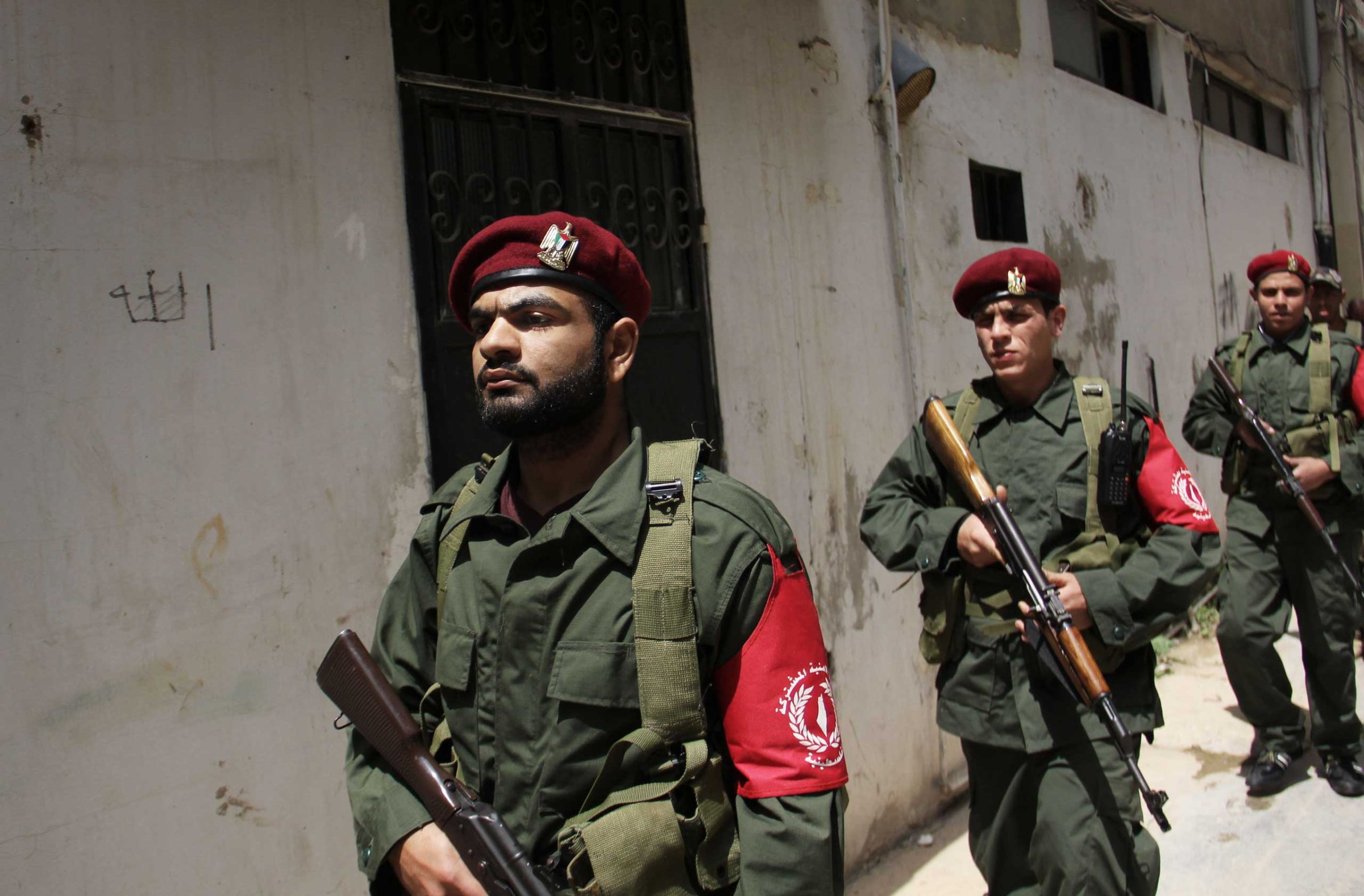
When militants from the Islamic State of Iraq and Syria (ISIS) took over the Yarmouk refugee camp in Damascus earlier this month, Munir al-Maqdah watched carefully from the Ain al-Hilweh camp in Lebanon.
Ain al-Hilweh, the largest Palestinian refugee camp in the country, had already become a favorite refuge for militants hiding from Lebanese authorities. Maqdah is head of a new elite Palestinian force aiming to maintain security in the camps and keep militants and their activities out.
“We don’t want this camp to become another Yarmouk or Nahr al-Bared,” says Maqdah, referring to the Palestinian camp in northern Lebanon, which in 2007 became the site of a fierce confrontation between Lebanese security forces and Islamists inside the camp. “All the refugees there had to leave. The camp was destroyed.”
Palestinians have tried to stay out of the Syrian conflict despite their factions being split between those aligned with President Bashar al-Assad, and those aligned with rebels trying to oust him. In Yarmouk, these divisions helped to allow ISIS to enter.
Maqdah points out only a small number of Palestinians have gone to fight with jihadi groups in Syria and Iraq, much fewer than from America or Europe. “The Palestinian mother raised us that the priority is to fight for Palestine,” says Maqdah.
Lebanese authorities have said Ain al-Hilweh shelters wanted militants and provides refuge for foreign jihadis. ISIS now has a strong presence on the Lebanese-Syrian border and has launched attacks on the Lebanese army. In February ISIS declared they would expand their caliphate into Lebanon.
Camps like Ain al-Hilweh are a convenient base for militants because since 1969, Lebanese security forces haven’t policed the 12 Palestinian camps in the country, due to an agreement struck by the late Palestinian leader Yasser Arafat. Now, Lebanese soldiers go no further than the checkpoints at the entrances to Ain al-Hilweh, where they search vehicles and check IDs. This has allowed the camps, specifically Ain al-Hilweh, to become lawless enclaves on Lebanese territory. “We face two problems in the Palestinian camps, one is drugs and the other is religious fanatics,” says Maqdah.
Inside the camp, men in jeans and sneakers stand ready on corners with Kalashnikovs and tactical vests loaded with ammunition. Security in Ain al-Hilweh is so bad, that even many Palestinians leaders live outside in nearby villages. Maqdah is one of the few that remain in the camp, where 100,000 people live in an area smaller than half a square mile. Maqdah walks the potholed streets and narrow alleyways in military fatigues with a pistol on his hip and group of armed guards. “We have 17 factions and everyone has guns,” says Maqdah. Militias have controlled the camp for decades, often fighting each other for supremacy. But last year, as it seemed more and more likely that the Syrian civil war would spill into Lebanon, Maqdah, a veteran Fatah commander, met with leaders from the main Palestinian groups including Hamas and other Islamist factions. They have what he calls a “democracy of weapons” and agreed to set-up a multi-faction force to secure the camp in coordination with Lebanese authorities.
Now, men from the Palestinian Common Security Force also patrol the streets of Ain al-Hilweh. Many of them have traded the flags of Fatah or Hamas for a red arm band declaring them no longer militants, but rather police. “We are ready to fight all terrorist groups,” says a bearded commander who calls himself Magnum, flanked by half-a-dozen young men. Until recently he was an officer in the Fatah forces.
At the moment there are 150 members of the multi-faction force in Ain al-Hilweh, but after ISIS fought its way into Yarmouk earlier this month, clashing with the Palestinian faction Aknaf Beit al-Maqdis, they plan to expand the force.
“When we watched what was happening in Yarmouk in the last two weeks. It raised fears for the Palestinians here,” says Maqdah. “For us it was reason to empower our police group in Lebanon.”
The Ramallah-based Palestinian Authority has now offered to put up most of the cash for the salaries and training to expand the force to other camps in Lebanon, which are home to around 500,000 Palestinians refugees from what is now Israel.
The Palestinian force includes an anti-terrorism unit, which will start its training next month, along with regular security forces and traffic police. Hamas and the other factions are all donating men to the new group but most are coming from the Fatah movement, which dominates the camp.
“They are getting military training together and there is a program to separate them from what they used to do with their previous forces,” say Maqdah. “When they are with us they have a different role.” The challenge will be turning a gaggle of Palestinian gunmen who once fought each other into a unified force able to secure the camp. But those who have signed up are optimistic. “ISIS has no chance to get in here,” says Mahmoud al-Amari a 23-year-old recruit to the force. “If they do we will be ready to fight them.”
Meet the Kurdish Women Taking the Battle to ISIS
![18-year-old YPJ fighter Torin Khairegi: “We live ina world where women are dominated by men.We are here to take control of our future..I injured an ISIS jihadi in Kobane. When he was wounded, all his friends left him behind and ran away. Later I went there and buried his body. I now feel that I am very powerful and can defend my home, my friends, my country, and myself. Many of us have been matryred and I see no path other than the continuation of their path." Newsha Tavakolian for TIME Zinar base, Syria "I joined YPJ about seven months ago, because I was looking for something meaningful in my life and my leader [ Abdullah Ocalan] showed me the way and my role in the society. We live in a world where women are dominated by men. We are here to take control of our own future. We are not merely fighting with arms; we fight with our thoughts. Ocalan's ideology is always in our hearts and minds and it is with his thought that we become so empowered that we can even become better soldiers than men. When I am at the frontline, the thought of all the cruelty and injustice against women enrages me so much that I become extra-powerful in combat. I injured an ISIS jihadi in Kobane. When he was wounded, all his friends left him behind and ran away. Later I went there and buried his body. I now feel that I am very powerful and can defend my home, my friends, my country, and myself. Many of us have been matryred and I see no path other than the continuation of their path."](https://api.time.com/wp-content/uploads/2015/04/kurdish-women-fighters-syria-isis-newsha-tavakolian-09.jpg?quality=75&w=2400)
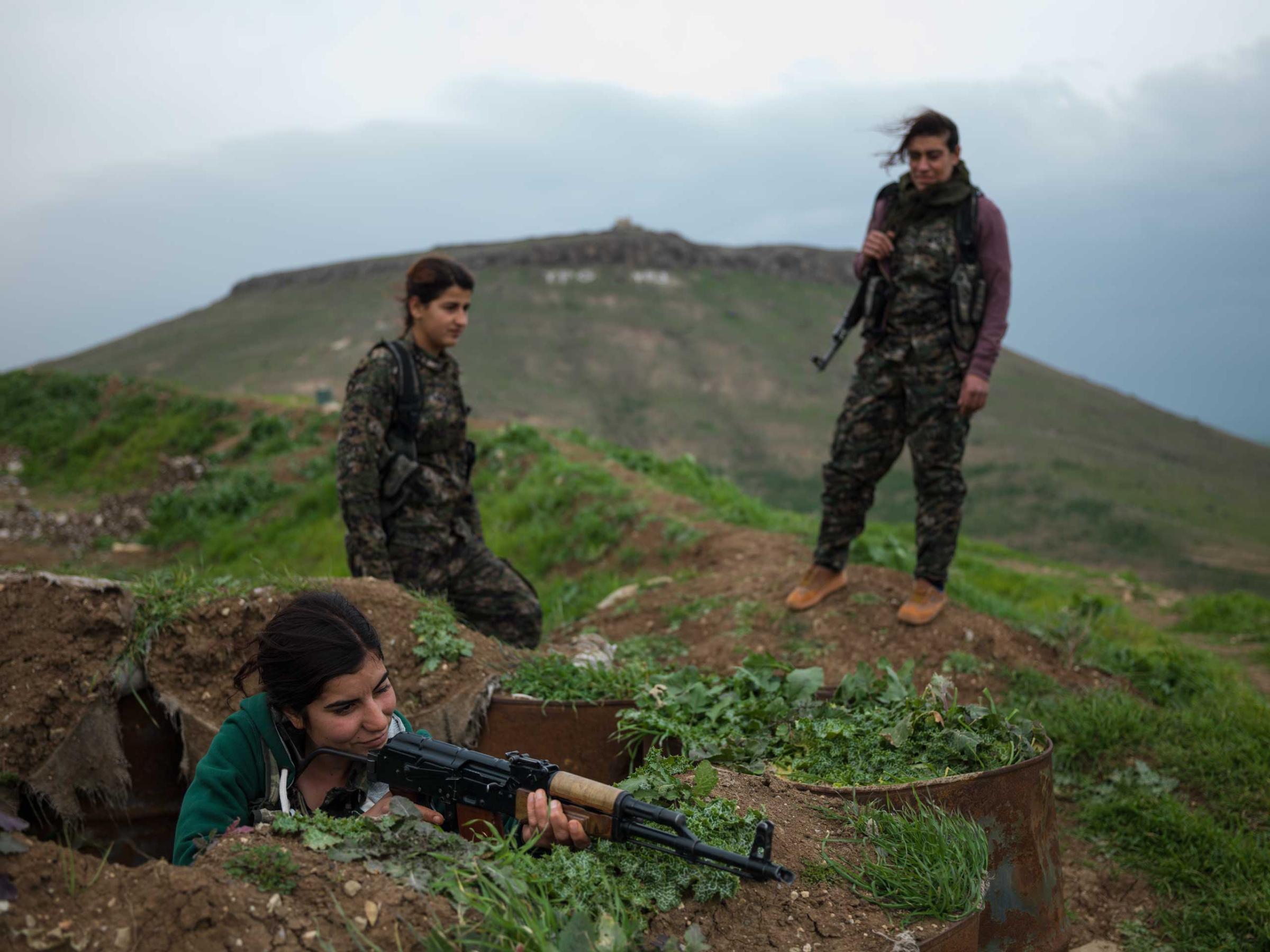
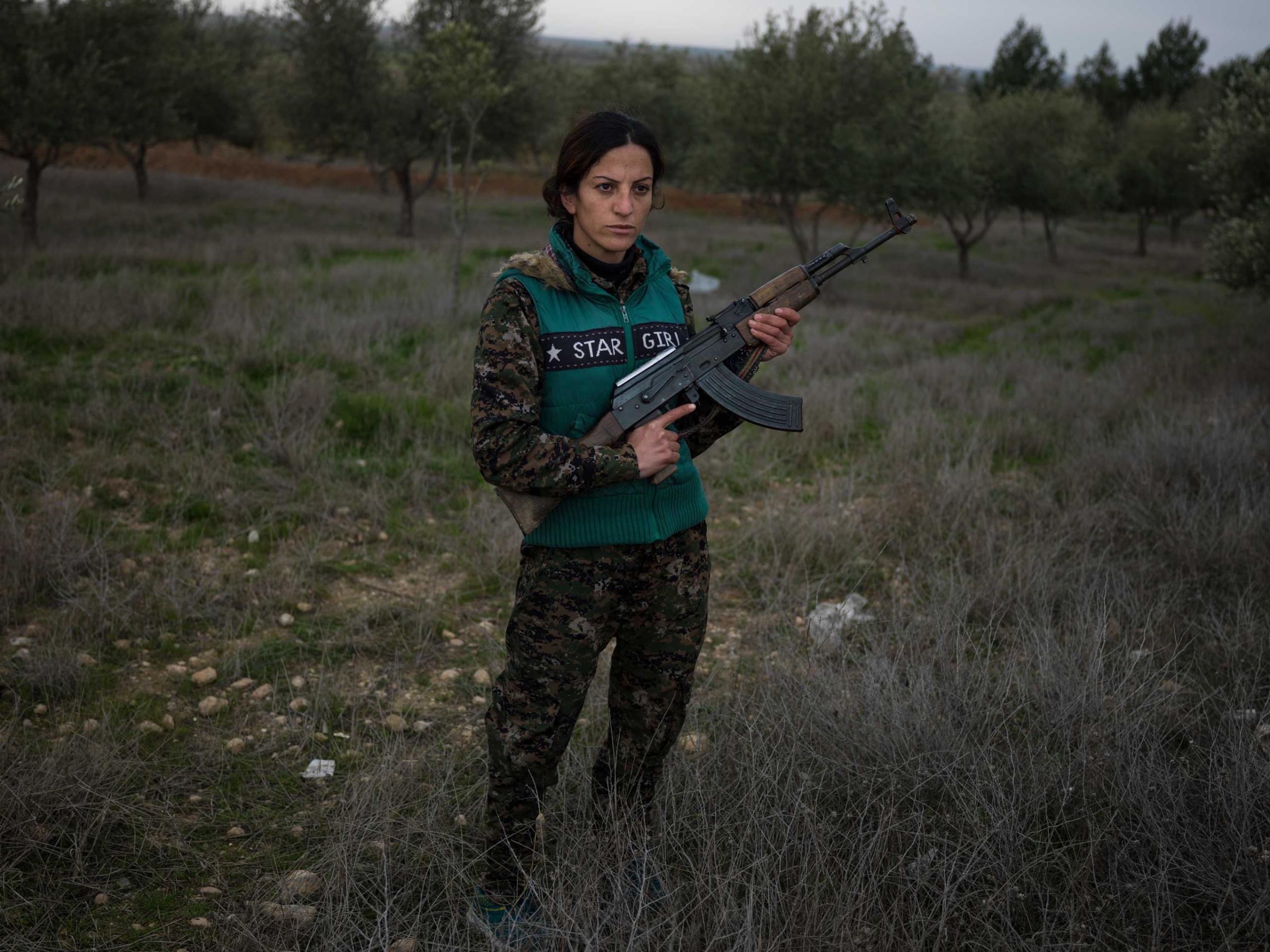
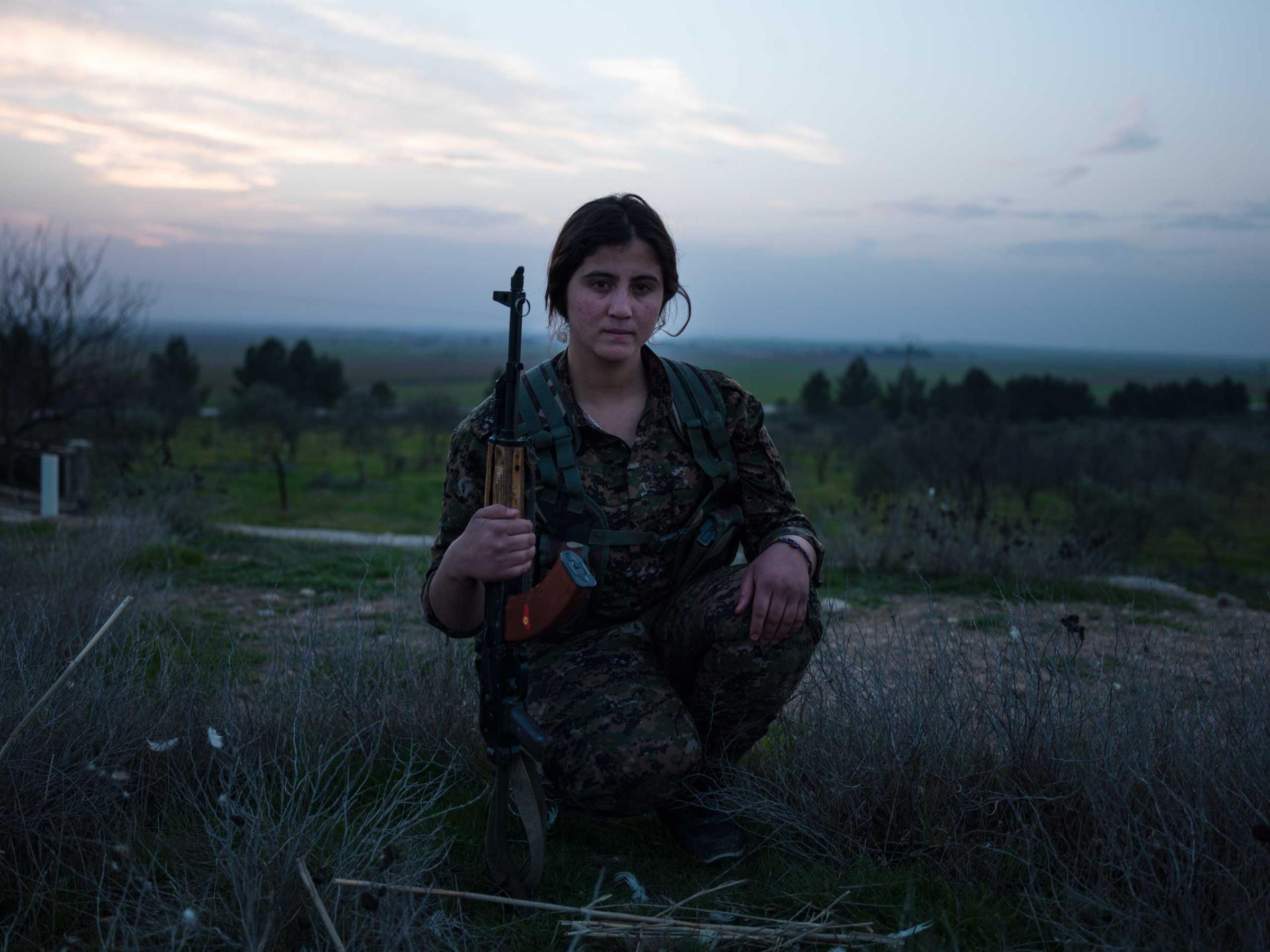
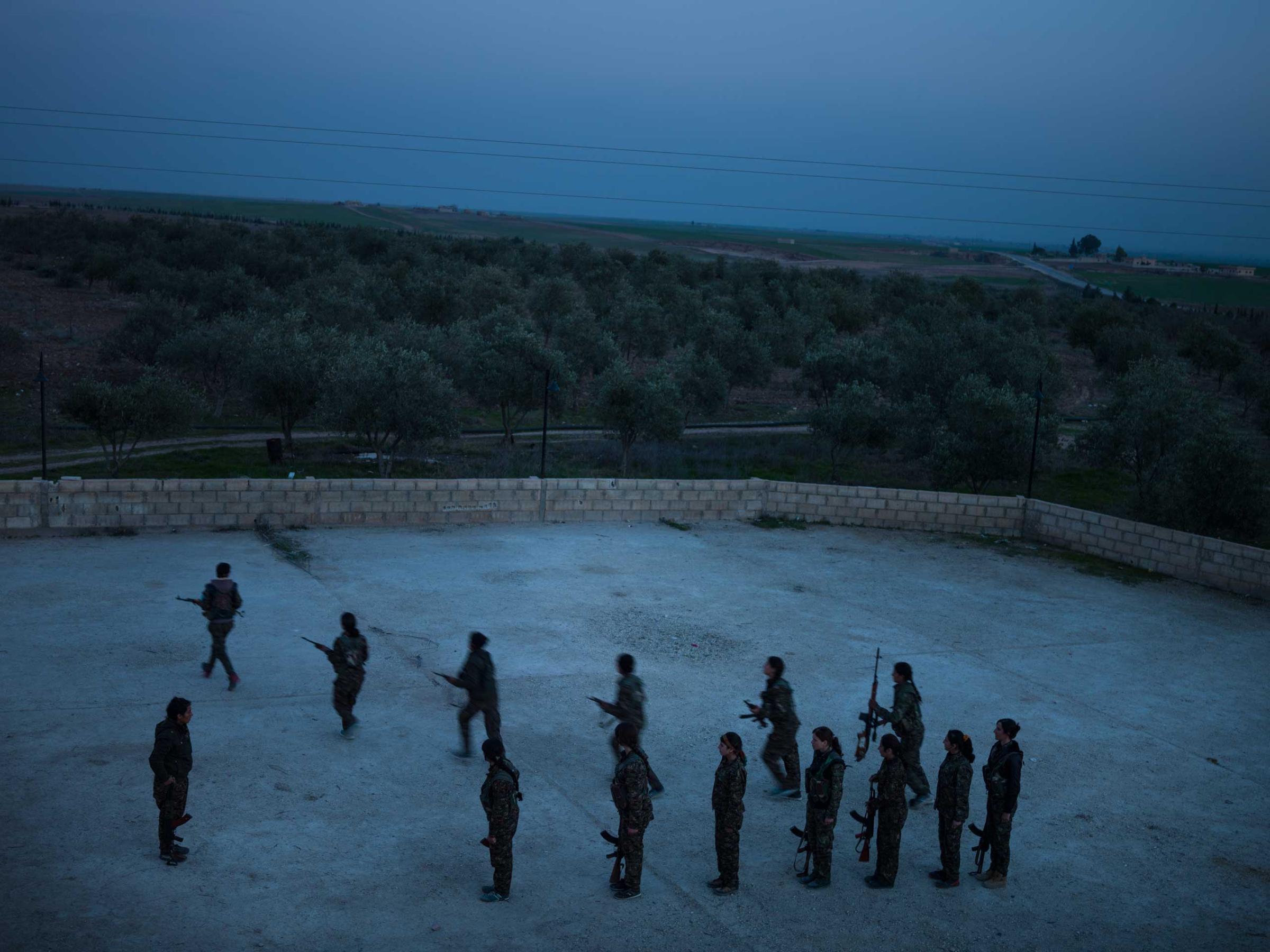
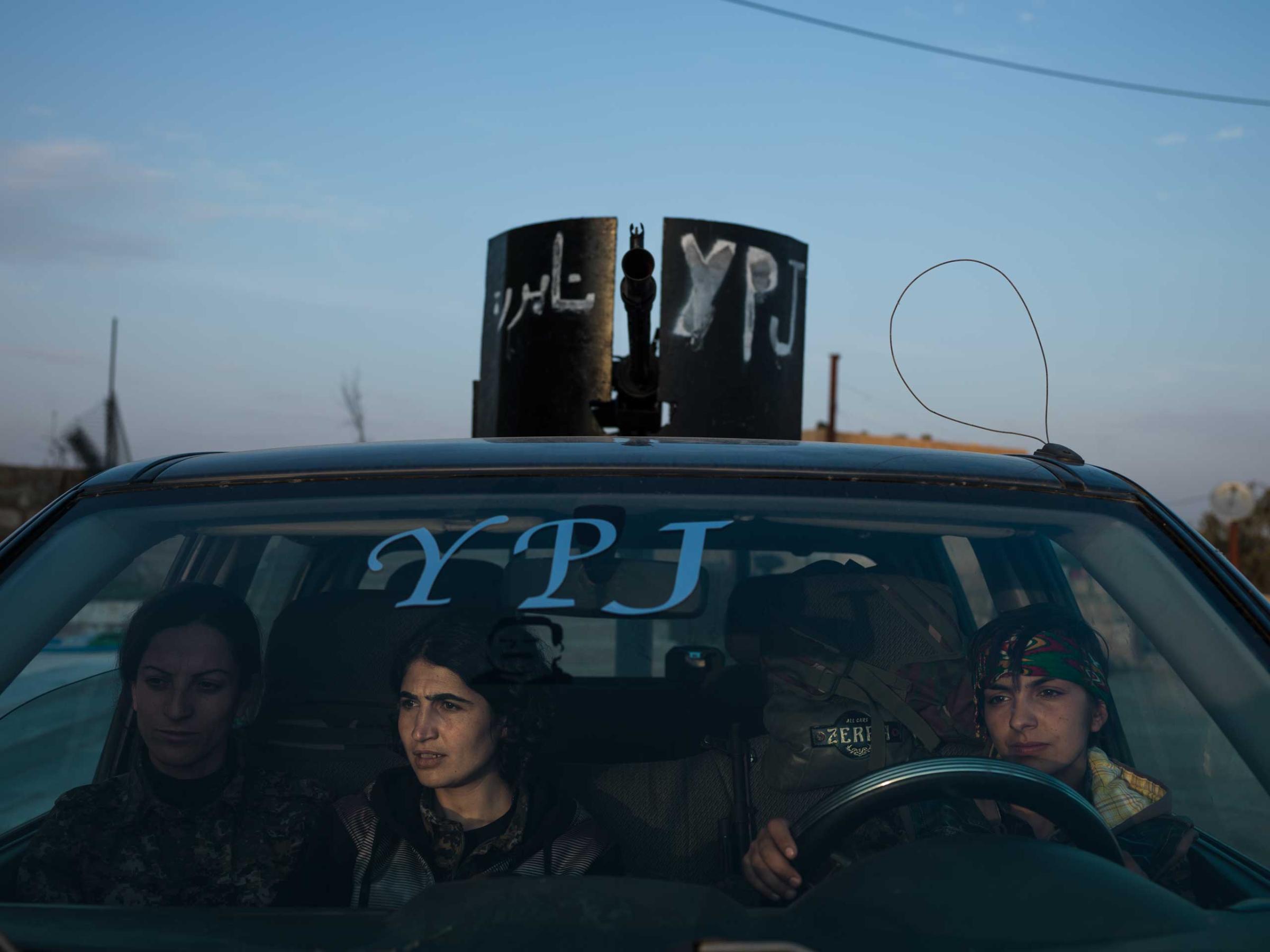
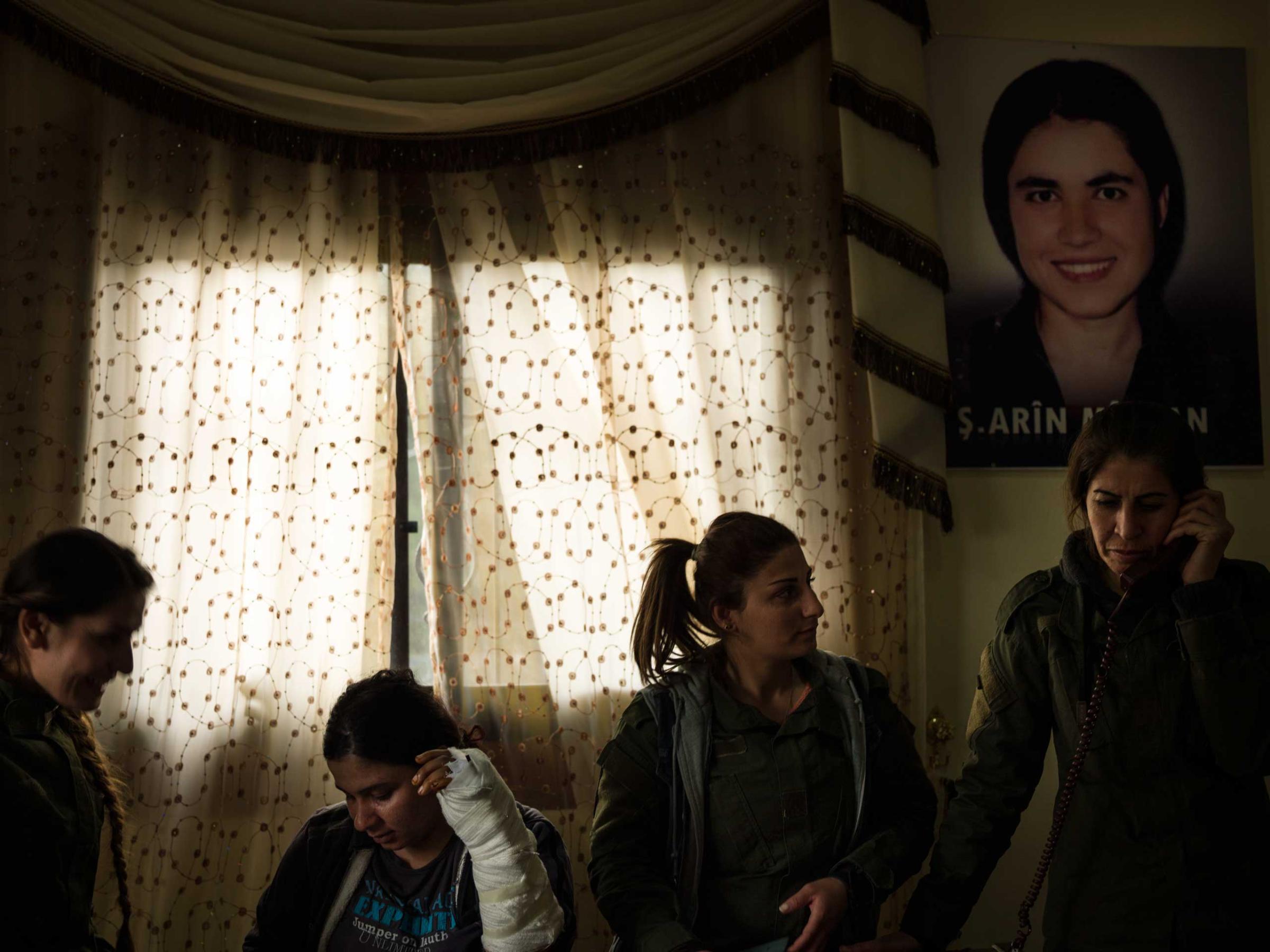
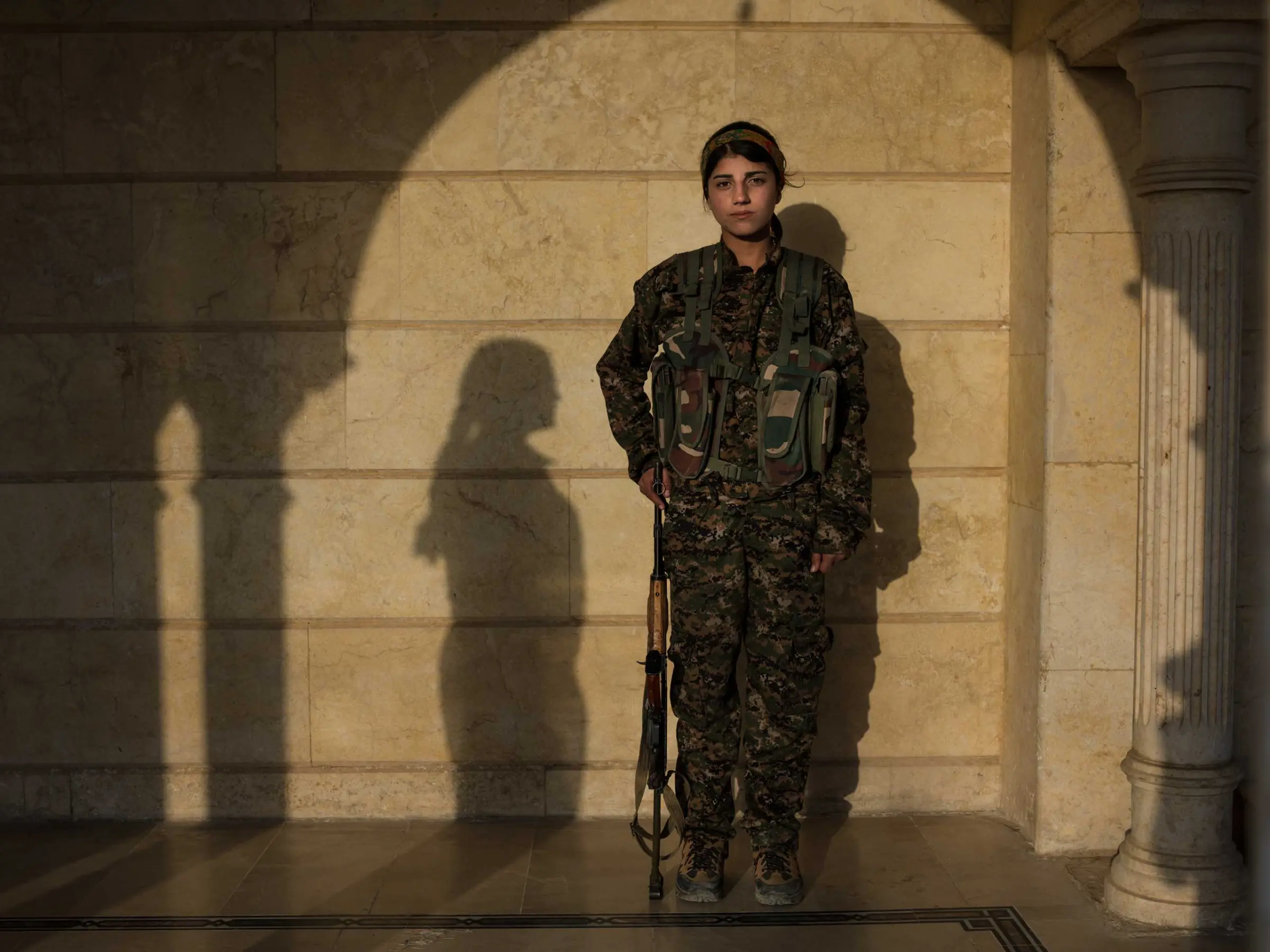
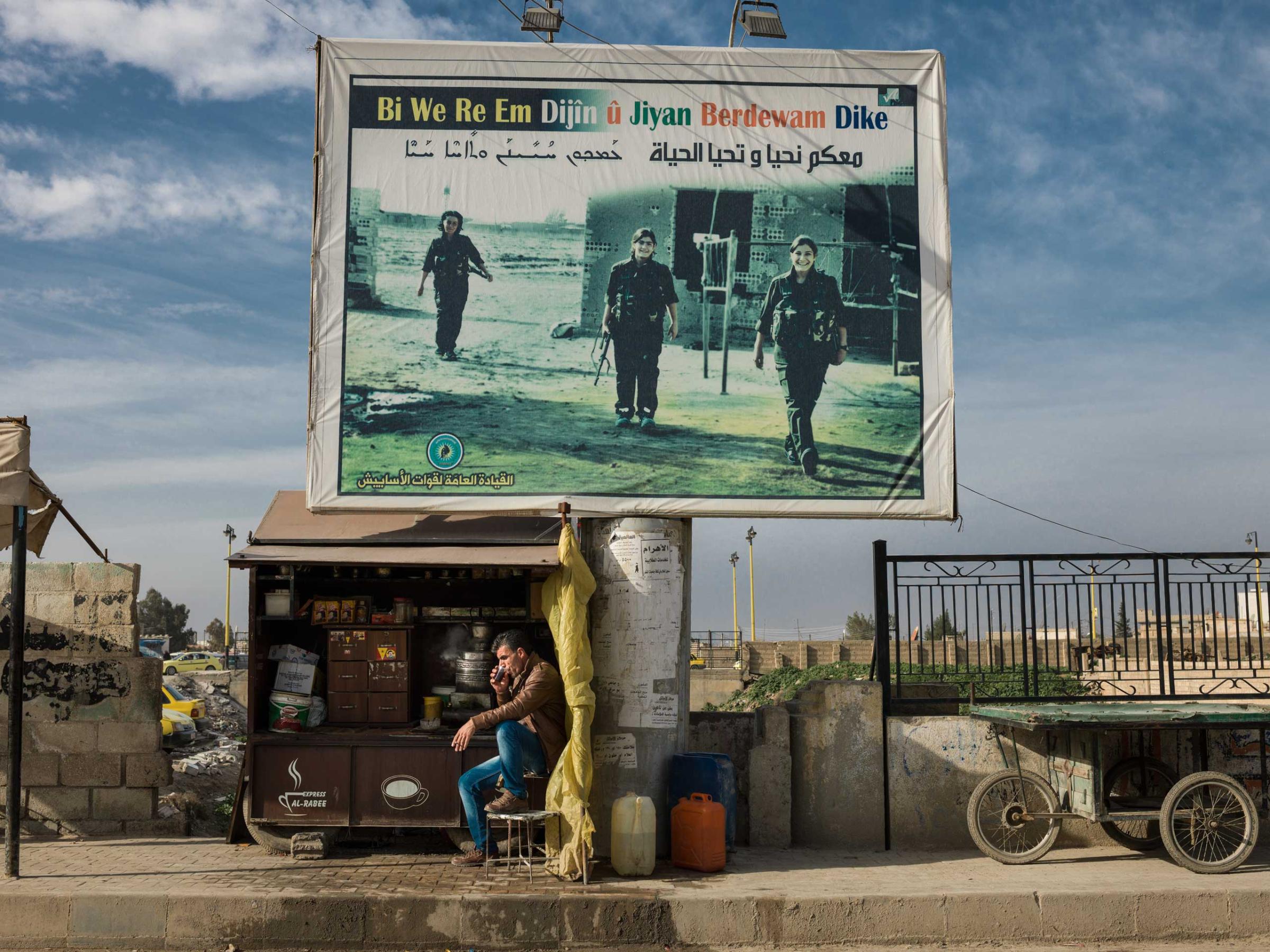
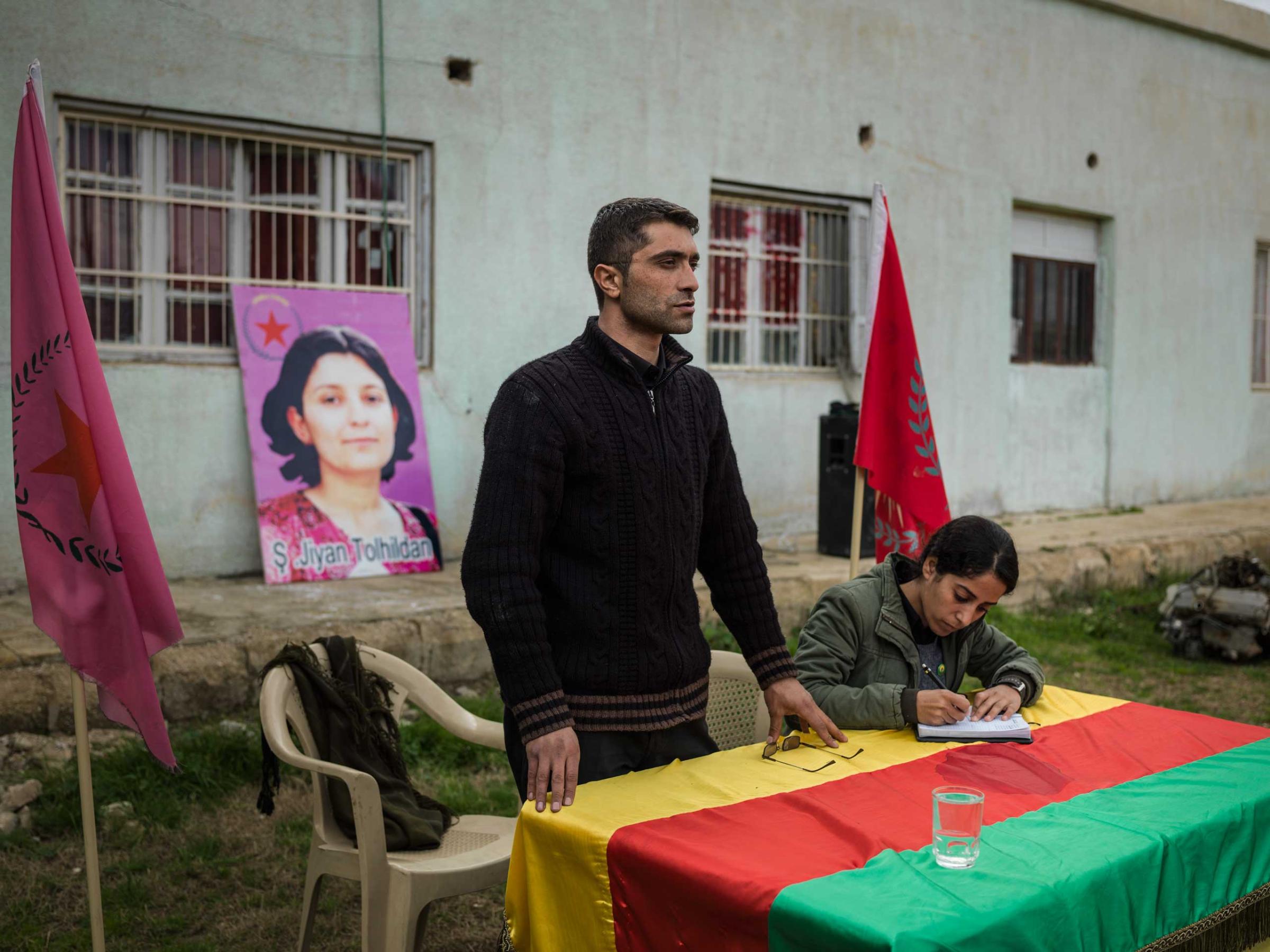
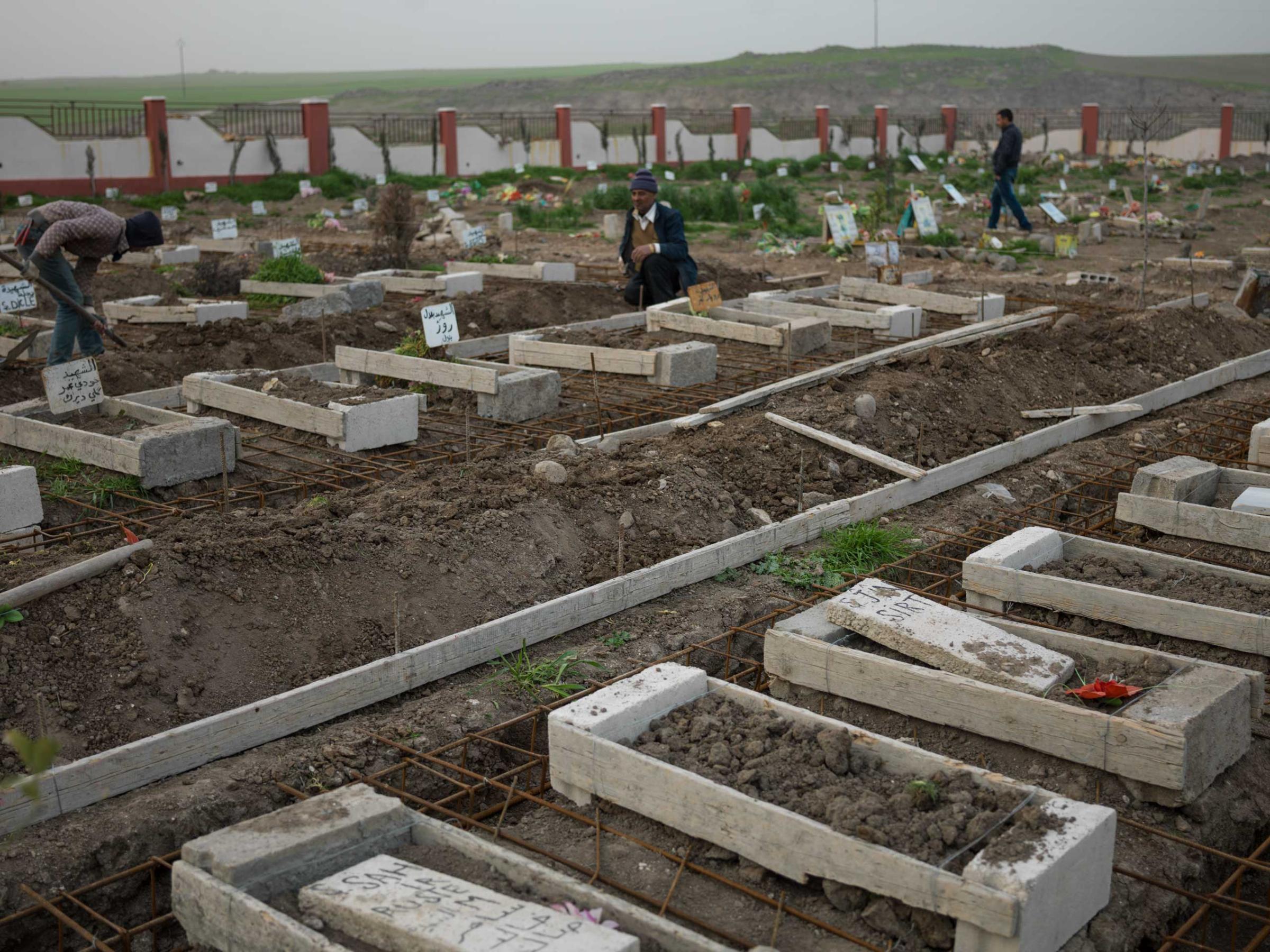
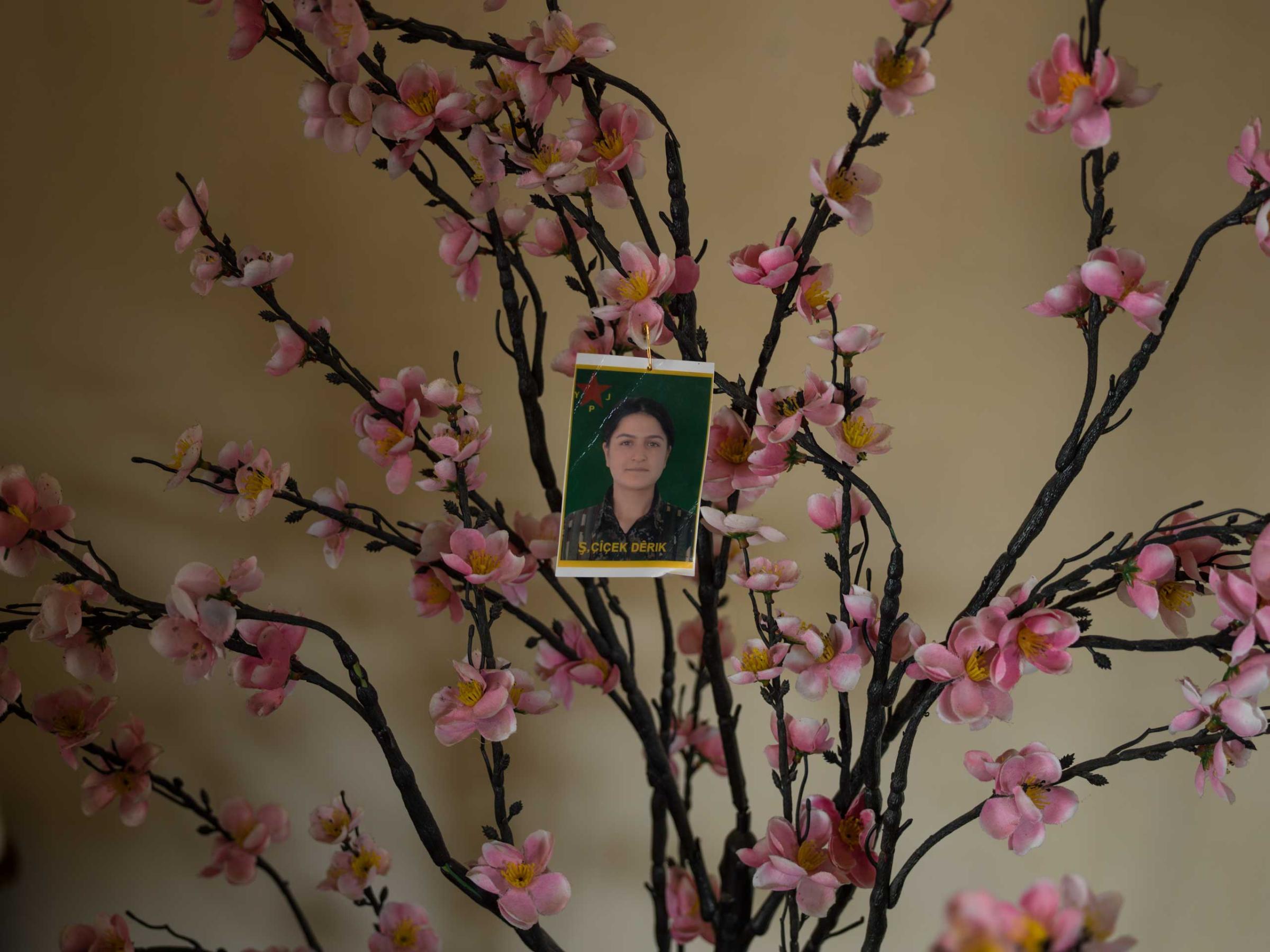
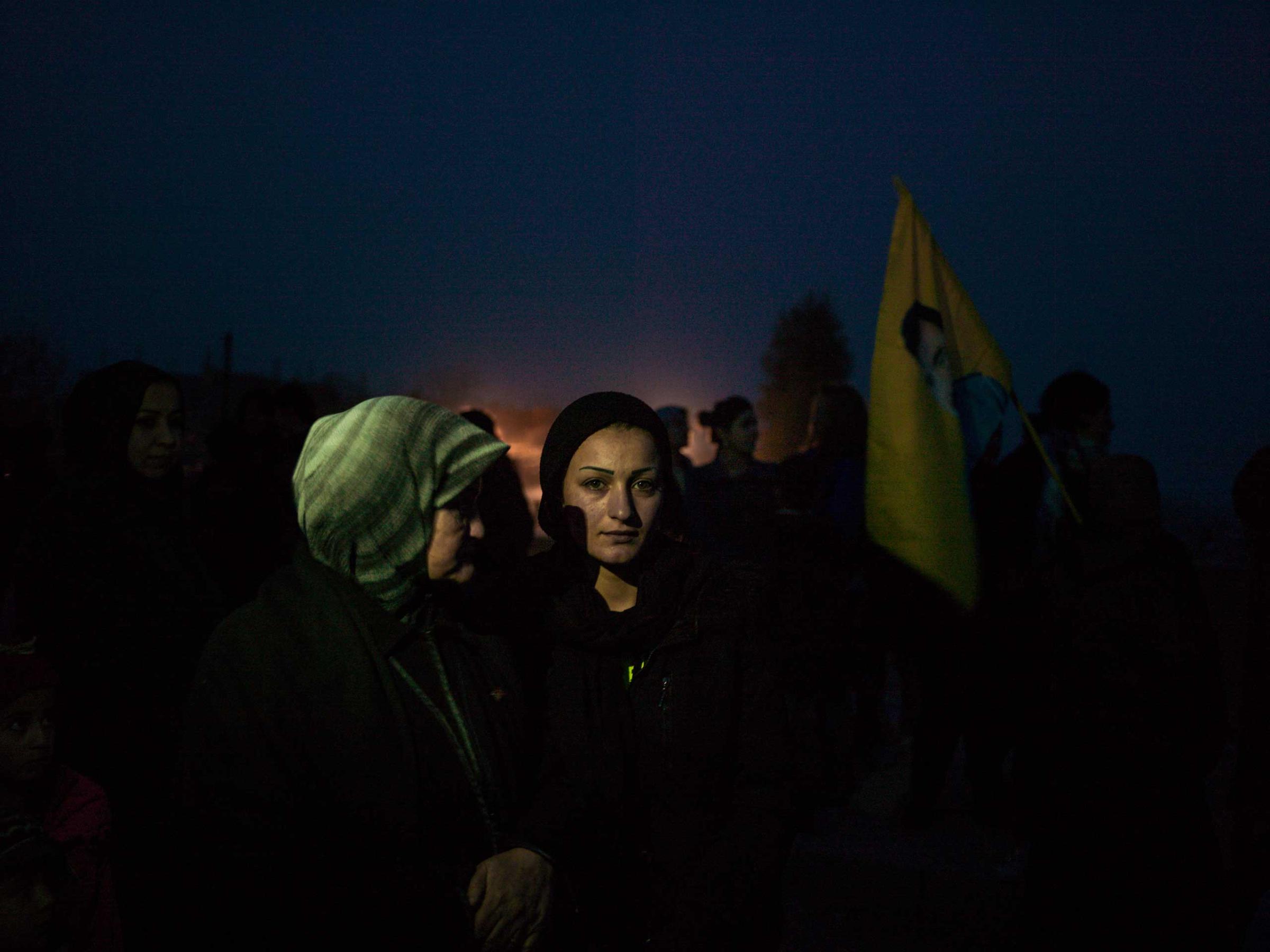
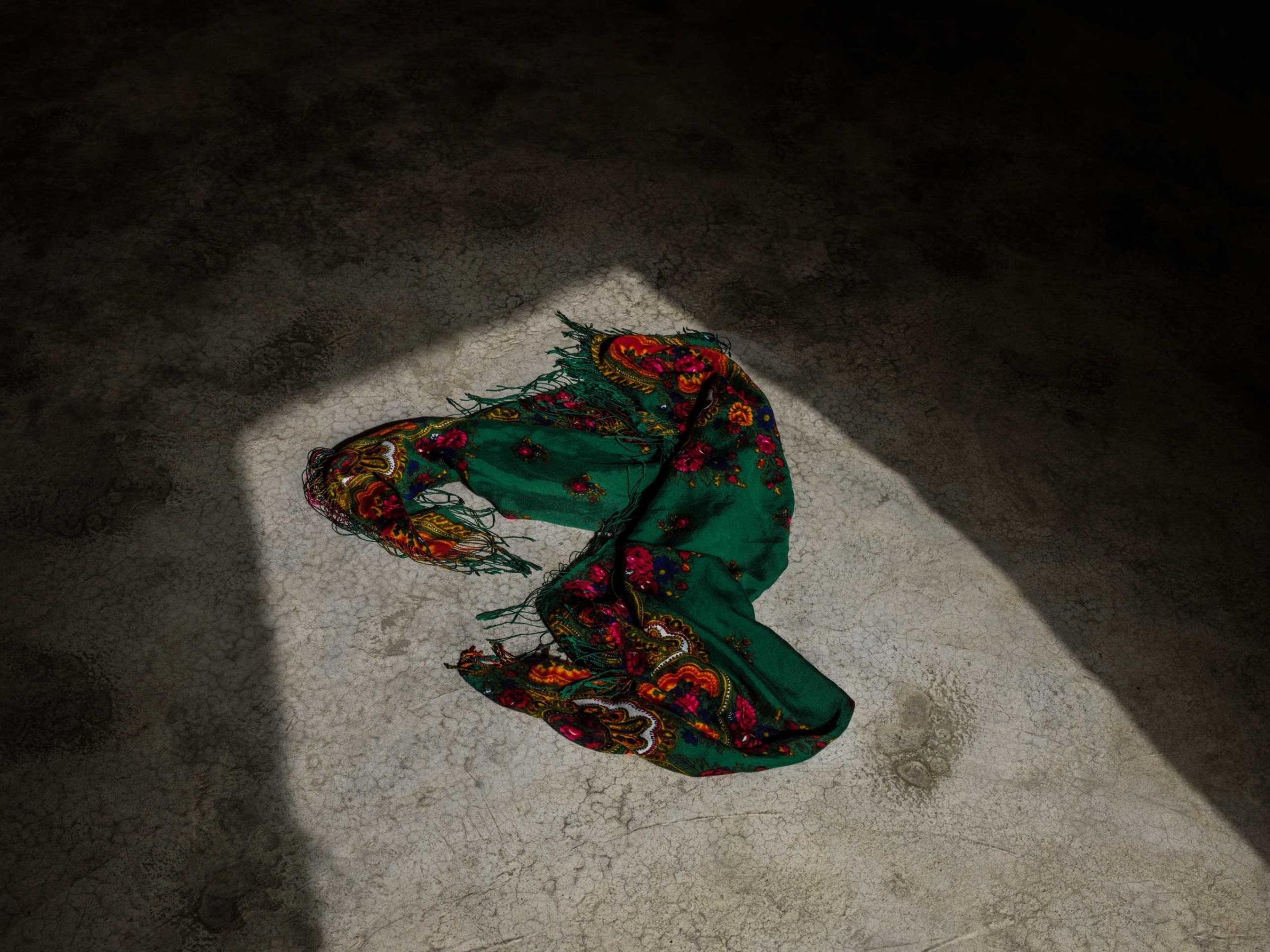
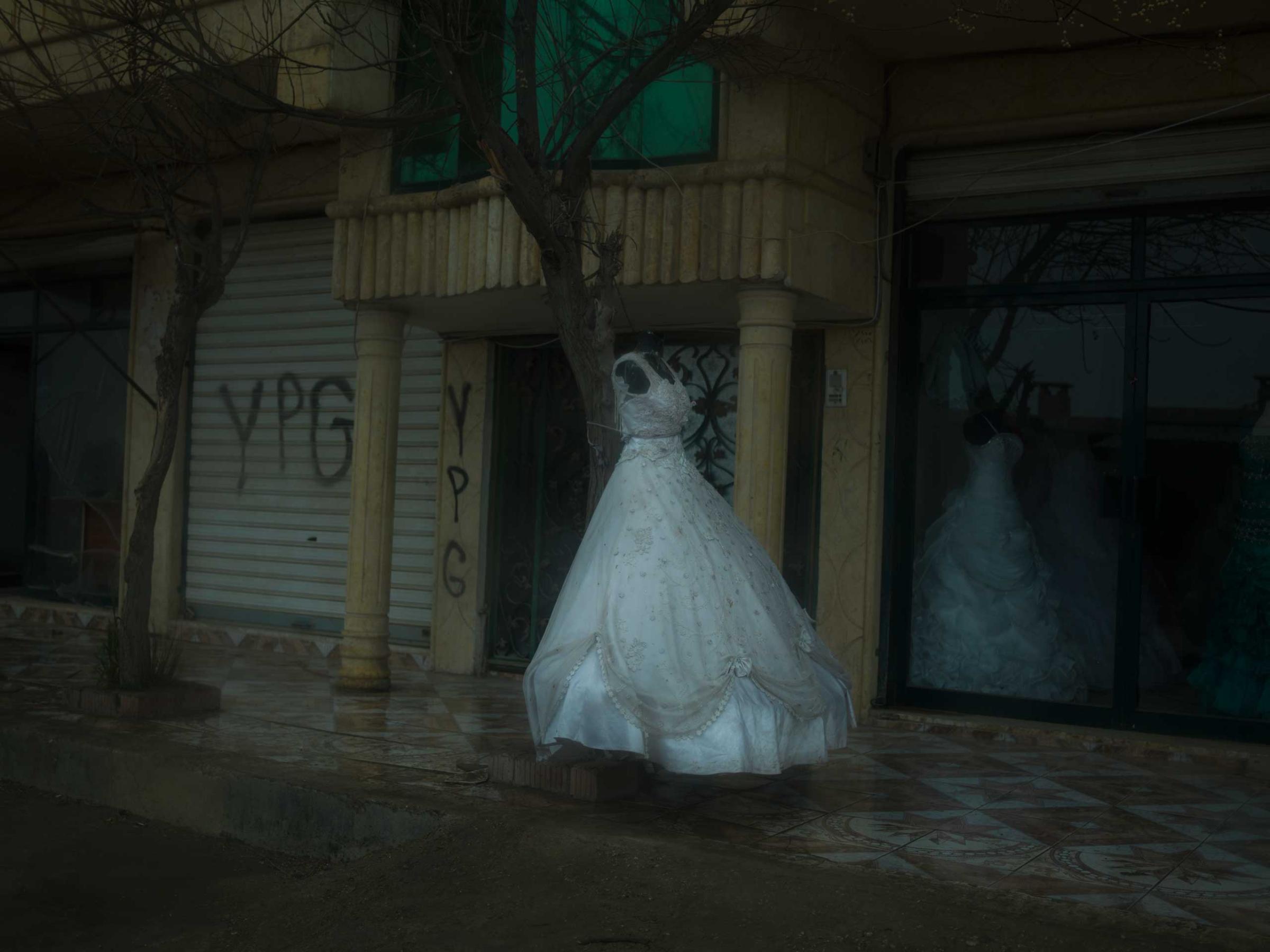
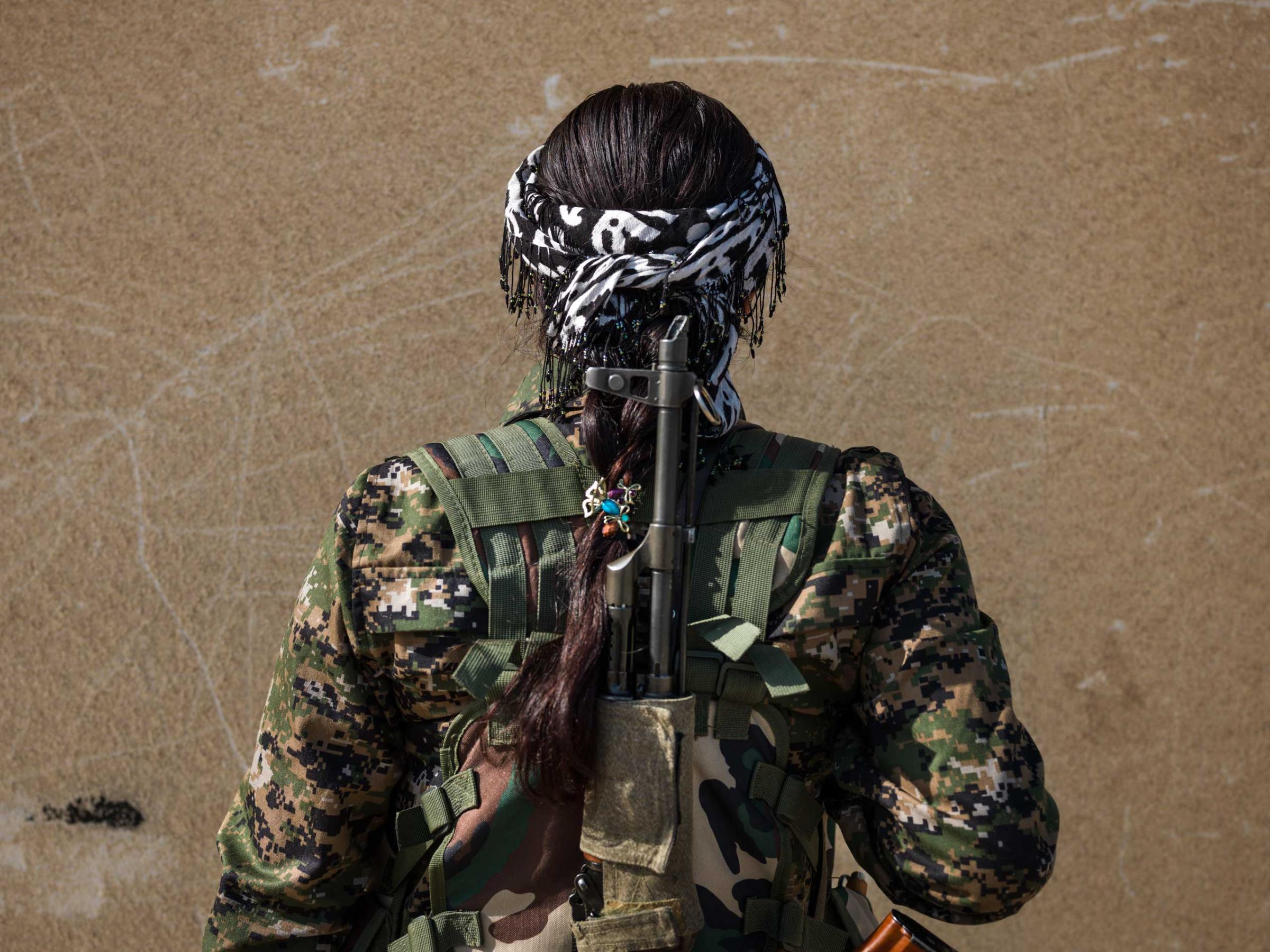
More Must-Reads from TIME
- Donald Trump Is TIME's 2024 Person of the Year
- Why We Chose Trump as Person of the Year
- Is Intermittent Fasting Good or Bad for You?
- The 100 Must-Read Books of 2024
- The 20 Best Christmas TV Episodes
- Column: If Optimism Feels Ridiculous Now, Try Hope
- The Future of Climate Action Is Trade Policy
- Merle Bombardieri Is Helping People Make the Baby Decision
Contact us at letters@time.com